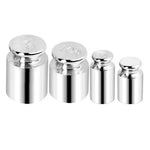Brands
-
420 Science -
Anomaly -
Arizer -
Astral Project -
Banana Bros. -
Beamer - Belle ustioni
-
Best Buds - Blazer
-
Boveda -
BRNT Designs -
Canada Puffin -
Cannabolish - Chongz
-
Cooco -
CVault -
DaVinci - Marche di elefanti
- EVault
-
Eyce -
Flowermate - Formula 420
-
Fresh San Diego -
Funtime Gifts -
Futurola -
G-Pen -
Green Jay -
Greengo -
Groove -
Heady Dad -
Higher Standards -
Hitoki -
Holk - Laboratori del miele
-
Hush Kush -
Insomnia Fun -
Insomnia Smoke -
Integra Boost -
Kannastör -
King Palm -
Magical -
Marley Natural - Arsenale di MJ
-
My Bud Vase -
Narcos - NWTN Home
-
Oak and Earth Creations -
On Balance -
Ongrok - Ozio
-
Raw -
RYOT -
Saverette -
Scrubber Ducky -
Session Goods -
Shine -
Smoke Odor Sterminatore -
Smokebuddy -
Smokezilla -
Stona -
Storz & Bickel -
Stündenglass -
TYSON 2.0 -
Wu-Tang -
Zong Wick - ...Tutti gli altri marchi



